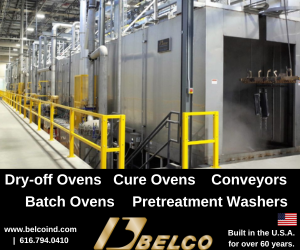Hardcoat Anodize on Diecast Alloy
Question: We have been hardcoat anodizing a part for one of our customers to a coating thickness of 0.001-0.0015 inch.
Question:
We have been hardcoat anodizing a part for one of our customers to a coating thickness of 0.001-0.0015 inch. The customer recently switched from 6061 alloy to a diecasting alloy 360 but still requires the same coating thickness. We have tried to process these parts in accordance with MIL-A-8625, Type III but have only been able to get a 0.0004-inch coating. Is it possible to build a coating of 0.001-0.0015 inch on 360 alloy? R.L.
Answer:
It may not be impossible to do this, but I have never had the opportunity to experiment with building heavy coatings on diecast parts. Your customer switched from one of the best hardcoating alloys to one of the worst. A cost savings in machining may have been achieved, but the ability to get the desired coating thickness may have been jeopardized. Diecast alloys are tough to anodize because of the very high silicon content, about 9.5% in 360 alloy. The alloy 380, another common diecast alloy, has high silicon and relatively high copper content as well. The problem with these alloys is that the alloying elements don't anodize.
All this having been said, I have been told that heavy coatings can be achieved on 360 and 380 alloy by first processing with a light acid etch containing fluoride (30 sec in a 10-15% ammonium bifluoride bath at 130F). This removes much of the surface silicon. Anodize in 15% sulfuric with organic additives at 70F and 24 asf for the time necessary to produce the desired coating thickness. Why don't you try it? It might work.












